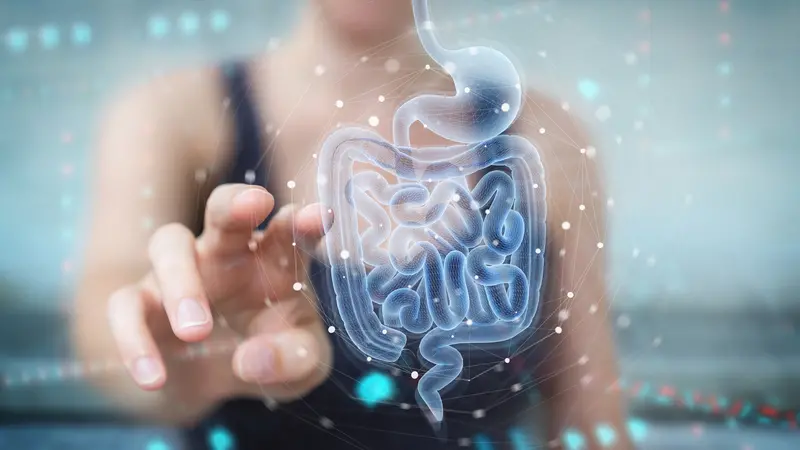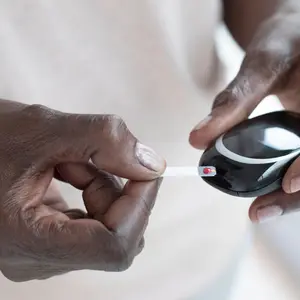

Chronic Conditions and Diseases

Chronic Conditions and Diseases
IBD and IBS: Signs, Symptoms, Causes and Protocols
Is it inflammatory bowel disease (IBD) or irritable bowel syndrome (IBS)?
Are you experiencing symptoms of inflammatory bowel disease, or could it be something else? The terms inflammatory bowel disease (IBD) and irritable bowel syndrome (IBS) are often used interchangeably; however, they are two separate and distinct conditions. And it is possible to have both.
Signs and symptoms of IBD
IBD – Inflammatory bowel disease (IBD) is a category used to describe certain autoimmune conditions pertaining to chronic inflammation within the digestive tract. Conditions associated with IBD can greatly impact the quality of life and at times be frustrating, embarrassing, painful, and sometimes even life-threatening.
There are two main types of inflammatory bowel disease: Crohn’s disease and ulcerative colitis.
Crohn’s disease
Crohn’s disease involves inflammation of your digestive tract, with the most commonly affected areas being the last part of the small intestine (ileum) and the colon. You can have periods of remission as well as sudden flare-ups that can range from mild to intense.
Symptoms of Crohn’s disease include:
- Diarrhea
- Fever
- Fatigue
- Abdominal pain and cramping
- Blood in your stool
- Mouth sores
- Reduced appetite and weight loss
- Pain or drainage near or around the anus due to inflammation from a tunnel into the skin (fistula)
- Inflammation of skin, eyes and joints
- Inflammation of the liver or bile ducts
- Delayed growth or sexual development, in children
Complications associated with Crohn’s disease
- Bowel obstruction
- Malnutrition
- Colon cancer
- Enteropathic arthritis
- Osteoporosis
Ulcerative colitis
Similar to Crohn’s disease, ulcerative colitis can have long periods of remission followed by flare ups and increased inflammation. Ulcers can be found predominantly in the innermost lining of the colon and rectum. Depending on the location and type of ulcerative colitis, your IBD symptoms may vary.
Symptoms of ulcerative colitis may include:
- Rectal bleeding
- Diarrhea with blood
- Dehydration
- Abdominal cramping and discomfort
- Urgent need to have a bowel movement (but may not be able to go)
- Fatigue
- Nausea or loss of appetite
- Weight loss
- Fever
- Anemia
- Joint pain and soreness
- Eye irritation
- Rashes or painful skin ulcers
- Skin lumps
Ulcerative colitis can pose life threatening risks. Possible complications of ulcerative colitis include:
- Arthritis
- Osteoporosis
- Inflammation of your skin, joints and eyes
- Severe bleeding
- Severe dehydration
- Liver disease
- Colon cancer
- Toxic megacolon
- Perforated colon
- Blood clots
Recent studies offer hope in managing IBD symptoms
A meta-analysis was performed where they reviewed 14 eligible studies, comprising of 1,891 participants (938 IBD cases and 953 controls). The meta-analysis concluded that “IBD is significantly associated with having higher odds of vitamin D deficiency.”
In fact, patients with IBD had 64% higher odds of vitamin D deficiency when compared to their counterparts. Patients with ulcerative colitis had more than double the odds of vitamin D deficiency when compared with the control group.
Another meta-analysis looked into the safety and therapeutic use of vitamin D as a treatment for IBD. It reports, “Recent studies have found that VitD can induce and maintain IBD remission through antibiosis, anti-inflammatory, and repair of intestinal mucosal barriers, thus improving the patient’s disease activity and quality-of-life.” The meta-analysis revealed that vitamin D reduced the relapse rate and recommended it be considered in the treatment of IBD, at least as an adjunctive treatment.
IBD as an autoimmune condition
Unlike IBS, IBD is an autoimmune condition. This means that an environmental trigger turned on the expression of a pre-existing gene. That trigger may have been a bacterial infection or something else, but it was part of the story that led to where you are now.
You now have a few tasks to deal with.
- Identify and eliminate all known triggers. Clean up the environment you live in to support your health — reduce toxins like phthalates, avoid foods with pesticides, and check the air quality within your home.
- Schedule a consultation with a functional medicine doctor who can best help with autoimmune conditions. They can order a number of tests to drill down deep to what your body looks like right now and how to improve your future health.
- Pick up a copy of The Autoimmune Fix to educate yourself on how to prevent, reverse and arrest autoimmune conditions and get a proven protocol to better guide you in your journey to wellness.
Signs and symptoms of IBS
IBS – IBS or irritable bowel syndrome is not an autoimmune condition, but a growing number of people suffer from it. You can have both an inflammatory bowel disease like ulcerative colitis and Crohn’s in addition to irritable bowel syndrome.
IBS is a common disorder affecting the large intestine. Unlike inflammatory bowel disease (IBD), IBS does not appear to cause changes in bowel tissue or increase your risk of colorectal cancer.
It does affect the bowels, though. IBS has four basic categories based on bowel symptoms: IBS-D (diarrhea), IBS-C (constipation), IBS-M (mixed bowels), and IBS-U (unclassified). These symptoms can be triggered by things like food, stress, and hormonal changes.
Prevalence of IBS is common, with rates ranging from 10-15% worldwide. Studies reveal that up to 84% of people suffering from IBS test positive for Small Intestinal Bacterial Overgrowth (SIBO).
Symptoms of SIBO (small intestinal bacterial overgrowth)
- Weight loss/weight gain
- Steatorrhea (fatty stool)
- Vitamin/mineral deficiency – fat-soluble vitamins (A, D, E, K), vitamin B12, and iron
- Folate excess
- Hypoproteinemia/hypoalbuminemia (lower than normal protein levels in the blood)
- Mental acuity symptoms including brain fog, fatigue, anxiety, etc.
- Dietary intolerance to certain carbohydrates, fibers, and alternative sweeteners
Study on IBS
Harvard performed a study where they took 36 patients with irritable bowel syndrome whose treatment protocols failed for at least a year. These patients had tried everything without success. The patients were compliant with the recommendations, yet nothing worked.
This study used a technique called confocal endomicroscopy, which is like electron microscopy inside the gut, so they could see the individual cells in real time.
So, they put a camera down there, injected a dye into the patient’s veins so that it would go right past the gut, and then gave patients either wheat, soy, dairy, or yeast. Then they waited to see what happened to the dye. As they observed, all of a sudden, they saw the white dye out through the surface of the inside of the gut. There was kind of a mini-explosion, and the white dye was coming out into the gut itself.
This is what happened when they exposed people to wheat, dairy, yeast, or soy within five minutes of exposure. Cells started gaping open; they could see intestinal permeability as it was happening.
The scientists at Harvard wrote that the white dye was evident to everyone in the room. The gaping of the cells was obvious to everyone in attendance. Everybody saw the same thing — that foods are a common trigger to irritable bowel syndrome and to the inflammation that comes. They also started to piece together what inflammatory bowel diseases developed because of certain foods. It makes you question whether most of the people with Crohn’s or colitis had symptoms that at first were associated with irritable bowel syndrome and then just got worse and worse.
Food sensitivities and IBS
You have to find out why the gut is irritable, and there are so many different reasons as to what can irritate the gut. Don’t accept irritable bowel syndrome as a diagnosis. Find out why your gut is irritable. It’s so important.
It may be a food that’s going down. It may be the microbiome itself that’s so far out of balance. It may be environmental. It could be mold in the house. There is no single cause for IBS.
Food is so important. There’s not one diet for all of us, and that’s why it’s really important to work with an expert. Maybe the autoimmune paleo protocol is going to work for you, or a low FODMAP, or a low lectin diet, or maybe more of a plant based vegetarian type diet. But food is definitely primary in getting well.
The best way is to work with a functional medicine practitioner who can help figure that out for you. But if you’re on your own, I’d say the first rule of thumb is eat God made foods and not man-made foods. Then remove wheat, dairy and sugar and see what happens. That’s a really good starting place.
Some simple strategies
- A food sensitivity test can help guide and prioritize an elimination diet.
- A gluten and wheat-free diet is almost always indicated to protect and heal intestinal tight junctions.
- Avoid alcohol and caffeine.
- Remove dairy and sugar, as they can be very inflammatory.
- Avoid excessive pesticide residues by choosing organic produce, coffee, and meat.
- Use caution with all plastics, particularly plastics containing BPA that are exposed to heat.
There could be just a handful of foods that are triggering inflammation for some people. Definitely find someone to work with to help you pin down your specific triggers. If you want to tackle it yourself, start on the elimination diet.
Is it IBD or IBS? Be sure with IBSSure
One way to rule out IBD is to take a test called Vibrant IBSSure™. This test measures two blood-based antibodies that can be used in the diagnostic workup of IBS. These antibodies can also identify past exposure to bacterial toxin (food poisoning) and autoimmunity of the intestinal motility system.
Vibrant IBSSure™ may help to identify patients with IBS-D related SIBO. This blood test can reduce costs, reduce potential false negatives, and assist with monitoring for SIBO recurrence.
A positive IBSSure result indicates that it is highly likely that you have IBS-related SIBO. If your test results come back as “inconclusive,” a good next step for you may be taking the hydrogen/methane breath test. If you are taking steroids, anti-inflammatory medications, biologic agents, or any other immunosuppressive medications, you may not get an accurate reading of your antibody levels.
Keep in mind…
Whether you have IBD, IBS, or both, testing and managing symptoms can go a long way in living a higher quality of life and minimizing symptoms. Foods and protocols may vary from individual to individual. The key is to listen to your body, begin to make associations between what is going on in your diet or life at the time, make adjustments, and test to measure your improvement over time.
REFERENCES
theDr.com. (n.d.) IBD and IBS: Signs, symptoms, causes & protocols. https://thedr.com/ibd-and-ibs-signs-symptoms-causes-protocols/


 By
By






